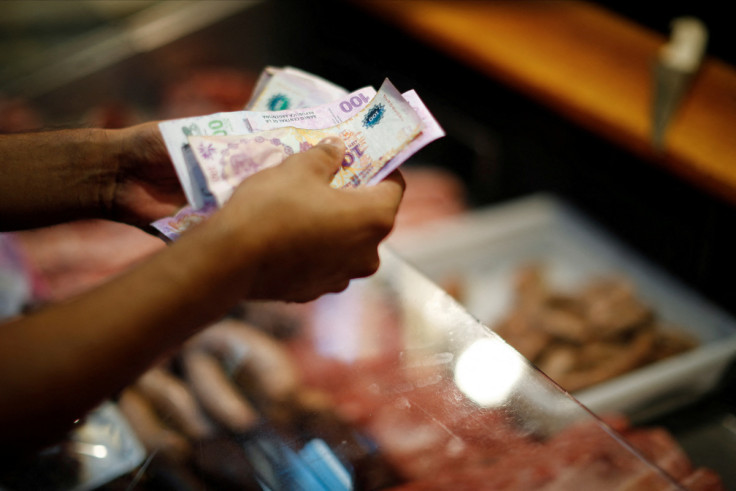Argentina Orders Public Sector To Give Up Dollar Bonds In Debt Shake-up

Argentina ordered public sector bodies on Thursday to sell or exchange their holdings of 11 sovereign dollar bonds in a bid to reorganize its debt as inflation soared above 100% and its foreign reserves dropped.
A presidential decree in Argentina's official gazette said public sector bodies would have to sell or auction five local law dollar bonds maturing between 2029 and 2041, and to swap six foreign law dollar bonds for peso debt.
The order makes official plans announced earlier in the week, which had dragged down the value of Argentina's sovereign bonds. These are already in distressed debt territory after a ninth sovereign default and a major debt restructuring in 2020.
Sovereign bond prices edged down further on Thursday, with some of the affected bonds dropping as much as 5%. Some analysts warned the measures could bring short-term gain for the government, but mean losses for state bodies longer-term.
"This swap is the same as sweeping the garbage under the rug," economist Mart?n Redrado, a former central bank chief, said in televised comments.
Argentina, which has long struggled with debt crises and has a $44 billion International Monetary Fund (IMF) program, is racing to shore up state coffers that have been hit by drought impacting grains sales and high global prices.
The government said its aim was to reduce exchange rate volatility, which has seen a huge gap open between the official peso-dollar exchange rate and parallel foreign exchange markets, and to absorb a surplus of pesos that worsens inflation.
"These measures will make it possible to have greater availability of instruments to stabilize the markets if necessary, absorb possible monetary surpluses and to continue fighting inflation," the government said in the decree.
The IMF said it was assessing the measures, though cautioned that while "prudent debt management" was needed, it should not be done in way that would "add to vulnerabilities down the road."
Public sector bodies will have to sell the local law dollar bonds and exchange foreign law dollar bonds maturing between 2029 and 2046 for debt payable in pesos issued by the Treasury.
The new bond would have maturity up to 13 years and be denominated in dollars but paid in pesos.
It would accrue interest on the capital adjusted for inflation at a rate of 3%, or alternatively on the capital denominated in U.S. dollars converted to pesos at the exchange rate just before the date of payment plus a 3% annual coupon.
Some analysts criticized the move, saying it would hurt the so-called Sustainability Guarantee Fund (FGS) of the pension system, though officials moved to address those fears.
An economy ministry official, declining to be named, said the FGS would get 30% of the proceeds from selling the local law bonds as well as the new bond in exchange for the foreign law debt that would be adjusted for inflation and devaluation.
"(It) gives the FGS greater stability and security, since it is not a volatile bond," the official said, adding that the planned new debt instrument was "a low-risk bond, since it has a very low probability of being defaulted."
© Copyright Thomson Reuters 2024. All rights reserved.




















